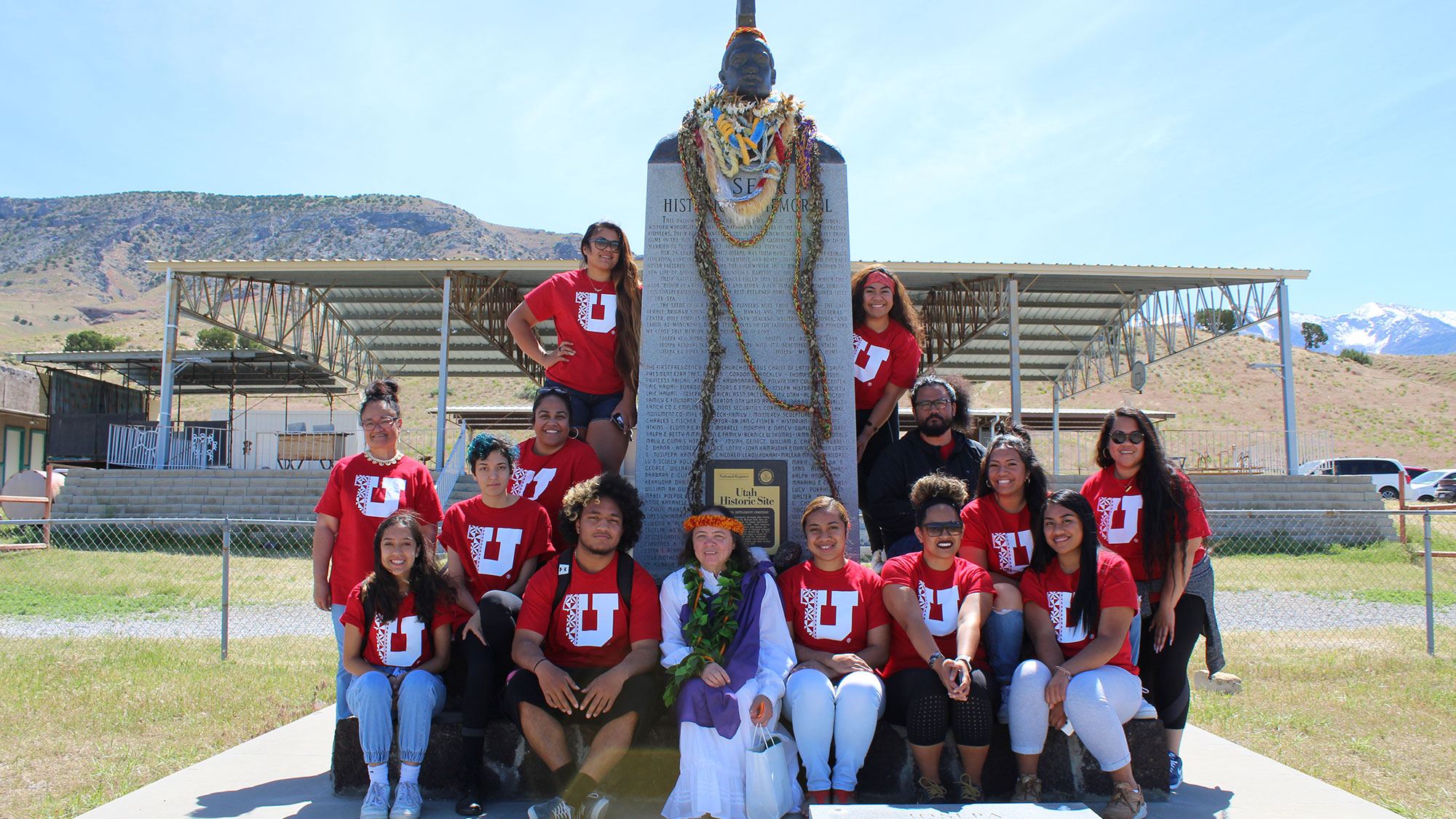The University of Utah’s School for Cultural and Social Transformation (Transform) has been awarded a $1,000,000 grant from the Mellon Foundation to support growth and outreach in its Pacific Islands (PI) Studies program. It was a three-year, $600,000 Mellon Foundation grant which allowed Transform to greatly accelerate its PI Studies initiative in 2018. This additional funding will expand current programming to include a graduate certificate, new faculty hires and a Center for Pasifika and Indigenous Knowledges.
This is Transform’s second Mellon grant in just one year. In December, the school received over half a million dollars to help build a national network for intersectional studies.
“In a word, we’re overjoyed,” said Kathryn Bond Stockton, Dean of the School for Cultural and Social Transformation. “This tremendous ongoing support from the Mellon Foundation will allow PI Studies faculty, staff and community members to realize collective visions for how Indigenous knowledges will shape and enrich all who embrace them.” Stockton underscored that the U has some of the most impressive and visionary PI Studies scholars and staff in the country—sustained by vibrant, involved communities that lend their wisdom with such generosity.
Utah has the largest number of Pacific Islanders per capita in the continental U.S. The U is uniquely positioned to support PI communities and create a place where PI-interested students and PI studies scholars can share knowledge and cultural traditions that also dramatically cross-connect with American Indian ways of knowing.
“It is an immense privilege to be at an institution where none of us (students, faculty or staff) is the only Pacific Islander,” said Maile Arvin, co-principal investigator and director of Pacific Islands Studies. “When we don’t have to prove to others that we exist or that the issues impacting our communities are not marginal, we have so much more space to pursue what interests us. The success of our program lies in the mutual support and relationships we continue to grow across our campus, our local communities and our international networks.”

PHOTO CREDIT: Pacific Islanders Studies
Pasifika Scholars visit Iosepa, UT during the first Pasifika Scholars Summer Institute, 2019.
Download Full-Res ImageSince first beginning to build an academic ecosystem that not only serves the largest Pacific Islander diaspora in the mainland U.S. but also advances the field more broadly, the U has hired five new faculty members focused on PI Studies and developed an official interdisciplinary PI Studies Certificate.
“Many of our students say that our classes are the first time they ever learned about their own histories and cultures at school,” said Arvin. “It is a great pleasure and honor to help them put their existing knowledge and interests into conversation with broader academic contexts and then to see students graduate and bring the skills in research and writing they honed with us to a variety of different careers.”
In addition, students who may not have otherwise engaged in classes through the certificate have discovered PI Studies through the Pasifika Scholars Bridge Program, a five-day, intensive summer course aimed at preparing first-year and transfer students and those interested in the PI Studies Certificate. Over the past two years, the program has grown into the Pasifika Scholars Institute, a webinar series which runs throughout the academic year.
As the flagship institution for the state, the U hopes to serve as a welcoming receiver of and anchoring resource for Pacific Islander communities. Still, there is more to be done and more that can now be done with new and enhanced support from the Mellon Foundation.
“We are excited to continue to offer Pacific Islands-focused programming for our students and PI communities near and far,” said Arvin. “One new venture will be producing a podcast that can highlight cutting-edge research and activism led by Pacific Islanders and other Indigenous peoples.”
Over the next three years of the $1 million Mellon Foundation Grant, Transform additionally plans to build these entities:
- Graduate certificate
Given the success of the undergraduate certificate and demonstrable interest in the field by graduate students, there is demand for an official course of study to prepare students for doctoral programs with a PI Studies emphasis.
- Center for Pasifika and Indigenous Knowledges
The formation of a consortium, with an eye to be a center, is the logical next step to organize the activities of our PI faculty and students in disparate fields across the U. Increasing the matriculation and success of diverse Indigenous students, this Center has the potential to situate PI Studies within a global Native context, forging international connections in ways that center research directed by Indigenous communities’ own concerns.
- International Network of Trans-Indigenous Scholars
The Center will advance a Pacific Islands Studies that is broadening in discipline, nation, and region, and attentive to concerns of Indigeneity, race, sexuality, gender, and relationships with other Indigenous peoples and places. Trans-Indigenous connection among Pacific Islanders and Native peoples speaks of self-healing and living traditions across key boundaries.
“We warmly thank the Mellon Foundation for funding the meaningful work we’re extending with brand new plans,” Stockton ended by saying. “To be blessed with large and vital PI communities here—and expert faculty and staff to guide such communal exchange—is to be so grateful for a funding Foundation as eager as we are to deepen these ties.”
Stockton concluded by naming the team who together crafted the U’s proposal: first and foremost, PI Studies scholars and co-principal investigators Dr. Maile Arvin, Dr. Kēhaulani Natsuko Vaughn, and Dr. Angela Robinson, passionately supported by Assistant Dean Estela Hernandez, Associate Dean for Research Claudia Geist, Interim Director of Pacific Islands Studies Matt Basso, the U’s Senior Director of Foundation Relations Daniel Hadley, and Stockton as Dean and Principal Investigator. The efforts also received welcome aid and financial contributions from Dean Stuart Culver (College of Humanities) and Dean Nancy Songer (College of Education).
To learn more about this grant and follow its progress, subscribe to Transform’s newsletter, Transformative Perspectives, or send questions to Stockton at Kathryn.Stockton@utah.edu.
